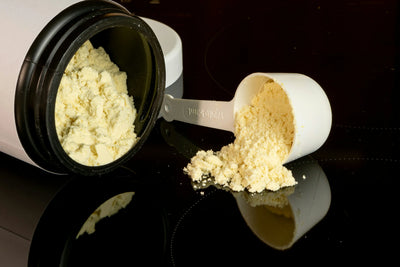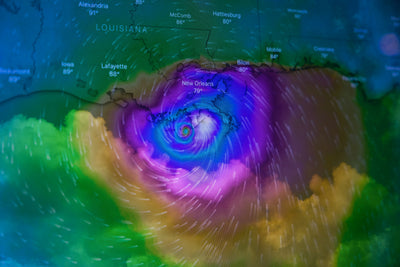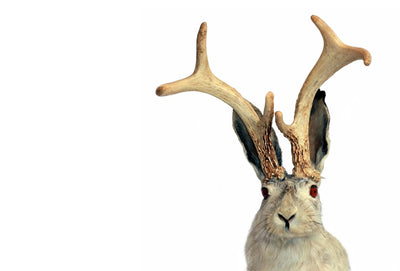Introduction
Colitis is a common digestive disorder in dogs. Inflammation involving the large intestine (colon) can cause discomfort and even more serious health problems. Whether it's sudden acute colitis or recurring chronic colitis, understanding the symptoms, managing the diet, and knowing when to seek veterinary help are all “musts” for every dog owner.
Dog with Colitis: Symptoms, Diet Guide & When to See the Vet (Ultimate Care Guide)
This ultimate care guide will take you through the full spectrum of dog colitis to help you provide the best care for your dog and get their tail wagging happily again!

1. Symptoms of Colitis in Dogs: How to Recognize?
Symptoms of colitis vary depending on whether they are acute or chronic, and knowing how they manifest can help you recognize the problem in time to take action.
(1) Acute colitis: quick onset, need to be vigilant
Acute colitis usually has a sudden onset and symptoms last for a short period of time (within a few days), but are enough to make your dog uncomfortable. The main manifestations include:
Diarrhea: soft or watery stools that may be interspersed with bright red blood or mucus that is as thick as jelly.
Urgency to have a bowel movement: the dog may want to be “liberated” frequently and may even “lose it” in the house, catching you off guard.
Difficulty defecating: The dog may struggle to defecate, showing pain or discomfort, occasionally accompanied by whimpering.
Vomiting: Although uncommon, some dogs may vomit due to gastrointestinal discomfort.
(2) Chronic colitis: recurring and requires patience
Chronic colitis is more persistent and may last for weeks or even months, with distressing on-again, off-again symptoms. Common manifestations include:
Persistent diarrhea: stools are soft, often with blood or mucus, and have an abnormal color and texture.
Loss of appetite: the dog may lose interest in food or even gradually lose weight, causing heartache for the owner.
Increased frequency of bowel movements: Although the amount of stool is small, the number of “trips to the toilet” increases significantly.
Abdominal pain: The dog may arch its back, crouch, or be reluctant to be touched on the abdomen, showing obvious discomfort.
If you find that your dog has any of the above symptoms, especially if they are persistent or recurring, don't ignore them, as they may be a “wake-up call” for colitis!
2. Dietary Management: Creating a “Comfort Zone” for the Gastrointestinal System
Scientific dietary management is the key to helping your dog relieve the symptoms of colitis and promote recovery. Here are some practical dietary suggestions:
(1) Easy-to-digest food: gentle soothing for the stomach and intestines
During the onset of colitis, your dog's stomach and intestines need to be “treated gently”. Choose foods that are easy to digest to ease the burden on the intestines:
Low-fat meats: Cooked chicken or turkey breasts are gentle and nutritious, removing excess fat.
Pumpkin puree: rich in soluble fiber, can absorb water to fix stool, relieve diarrhea, is the dog's “gastrointestinal savior.
White rice: simple and easy to digest, can be paired with low-fat meat to become the dog's “healing meal”.
(2) High-fiber food: “stabilizer” for chronic colitis
For dogs with chronic colitis, a moderate amount of high-fiber food can help regulate intestinal function and promote health:
Oats: rich in soluble fiber, can stabilize intestinal peristalsis, improve stool texture.
Green leafy vegetables: Cooked spinach or kale provide mild fiber and nutrition for long-term feeding.
(3) Stay away from irritating foods: don't “mess up” your stomach
During colitis, certain foods may aggravate symptoms and should be strictly avoided:
High-fat food: such as fatty meat, fried food, easy to irritate the intestinal tract, aggravate diarrhea.
High-fiber coarse grains: such as beans or whole grains, may be too irritating to the sensitive intestinal tract.
Lactose-containing foods: foods with high lactose content, such as milk, may trigger flatulence or diarrhea.
(4) Probiotic supplementation: the “health guards” of the intestinal tract
Probiotics are a powerful tool for restoring the balance of intestinal flora, reducing inflammation and promoting digestion. Choose a pet-specific probiotic supplement or dog food containing probiotics and gradually add them to your dog's diet. Many owners find that adding probiotics results in less diarrhea and better spirits in their dogs!
3. When to Seek Medical Attention: Don't Let a Small Problem Become a Big Trouble
While a mild case of acute colitis may resolve on its own within a few days, there are certain “red light” signs that you must take your dog to a veterinarian immediately:
Symptoms lasting more than 48 hours: If symptoms such as diarrhea and vomiting persist for more than two days, it may be a more serious problem that needs to be examined.
Signs of dehydration: Loss of skin elasticity, sunken eyes, and dry oral mucous membranes indicate that your dog may be severely dehydrated and need urgent attention.
Significant weight loss: Especially in dogs with chronic colitis, weight loss may be a sign of impaired nutrient absorption.
Abnormal feces: Large amounts of blood or black stool may suggest intestinal bleeding and require immediate medical attention.
Depression or loss of appetite: A dog's listlessness and reluctance to eat or drink may be a sign that the condition is worsening.
Seeking early medical attention will not only ease your dog's discomfort, but also prevent complications and allow them to rejuvenate as soon as possible.
4. Behind the Scenes of Colitis: Possible Causes at a Glance
Understanding the potential causes of colitis can help prevent and target treatment. Common causes include
Dietary problems: Inflammation of the intestines can be triggered by food allergies and the ingestion of foreign objects such as plastic or bones.
Infections: bacteria (e.g., salmonella), parasites (e.g., roundworms), or viruses may cause colitis.
Stress: Changes in the environment such as moving house or prolonged absence of the owner may “stress out” the dog and trigger intestinal problems.
Immune system disorders, such as autoimmune bowel disease, can lead to chronic inflammation that requires long-term management.
Understanding these causes, owners can reduce the risk of colitis by adjusting diet and reducing stress.
Dog colitis is common, but with careful observation, a scientific diet and prompt medical attention, most dogs recover quickly. The sudden symptoms of acute colitis, such as diarrhea and urgency to defecate, may be relieved with a gentle diet and probiotics, while chronic colitis requires long-term dietary management and veterinary guidance. The key is to: pay close attention to your dog's symptoms, avoid irritating foods, and seek professional help at the first sign of need.
As your dog's owner, your attentiveness and care is the greatest guarantee of their health. From choosing easily digestible food to regular health checks, every step brings your dog one step closer to a comfortable life. Let this ultimate care guide be your right hand to help your dog get rid of colitis and put a vibrant smile back on their face!
What NOT to Feed Dogs with Colitis: 10 Trigger Foods to Avoid (Printable List)
Colitis is a common intestinal problem in dogs, causing inflammation of the colon (large intestine), diarrhea, abdominal pain, and even loss of appetite. As a dog owner, careful dietary management is a key step in helping your dog regain its health. Certain foods can act like “fuel to the fire”, exacerbating inflammation or worsening symptoms, so it's important to be aware of and strictly avoid these “trigger foods”. In this article, we've compiled a list of 10 foods that dogs with colitis must stay away from, along with practical dietary advice and a printable no-no list to make it easy to create a healthy diet for your dog!
1. 10 Foods Colitis Dogs Must Avoid
Below is a list of 10 “dangerous foods” that can aggravate the symptoms of colitis, each with detailed reasons and suggestions for substitutions to help you choose a safer diet for your dog.
Milk and Dairy Products
Cause: The lactose in milk is a time bomb for many dogs. Due to a lack of lactase, dogs are unable to break down lactose, leading to intestinal fermentation, which can cause bloating, diarrhea, and other discomforts.
Alternatives: Choose a low-lactose formula for pets, or try goat's milk - it's low in lactose and easy to digest, especially for dogs with sensitive stomachs.
High-fat foods
Reason: High-fat foods such as fried foods, fatty meats, and animal offal are difficult to digest and can aggravate the intestinal tract, stimulate inflammation, and may even trigger pancreatitis.
Alternatives: Choose low-fat meats, such as cooked and fat-removed chicken breast or turkey, to provide high-quality protein while treating the intestines gently.
Spicy Foods
Reason: Spicy seasonings such as chili peppers, peppercorns and curry can act as “hot spikes” that irritate the mucous membranes of the intestinal tract, increasing inflammation and discomfort and making your dog's life more difficult.
Alternatives: Keep the diet light, avoid any harsh seasonings, and use natural ingredients such as cooked pumpkin to add flavor.
Sugary Foods
Reason: High-sugar foods such as candies and cakes can cause intestinal bacteria to “party like crazy,” leading to over-fermentation, which can lead to bloating and diarrhea, as well as increase the risk of obesity.
Alternatives: Choose low-sugar natural foods, such as pumpkin puree or a handful of carrots, which are rich in fiber and provide a gentle boost of nutrients.
Corn and Soy
Why: Corn and soy are common food allergens that can trigger allergic reactions and increase intestinal inflammation. Their crude fiber is also difficult to digest, increasing the burden on the intestines.
Alternatives: Choose hypoallergenic carbohydrates such as potatoes or sweet potatoes, or pick a high-quality dog food that is free of corn and soy.
Onions and Garlic
Why: Onions and garlic contain sulfides that not only irritate the intestinal tract, but may also destroy your dog's red blood cells, leading to hemolytic anemia, a serious health risk.
Alternatives: Avoid these ingredients altogether and use safe seasonings instead, such as a small amount of cinnamon or rosemary, to add flavor to your dog's diet.
Chocolate
Reason: Theobromine in chocolate is “poisonous” to dogs and can cause vomiting, diarrhea, heart arrhythmia, and even fatal risks.
Alternatives: Stay away from chocolate and choose safe snacks such as low-fat chicken nuggets or pumpkin puree to satisfy your dog's cravings.
Raw meat and bones
Reason: Raw meat can carry bacteria such as salmonella or E. coli, which can aggravate intestinal infections; raw bones can break down and cause intestinal blockages or perforations.
Alternatives: Choose cooked lean meats such as chicken or turkey. If calcium supplements are needed, use ground eggshells or pet-specific calcium powder.

Nuts and seeds
Why: Nuts (e.g. almonds, cashews) and seeds are high in fat and fiber, which are difficult to digest and may trigger allergies or aggravate intestinal discomfort.
Alternatives: Choose low-fat, low-fiber snacks such as cooked chicken nuggets or pumpkin puree that are gentle and safe.
Grapes and Raisins
Why: Grapes and raisins are toxic to dogs and may cause acute kidney failure accompanied by vomiting, diarrhea, and depression.
Alternatives: Choose safe fruits and vegetables, such as a cored apple or a small amount of banana, for a healthy snack.
2. Diet Tips for Dogs with Colitis
In addition to avoiding trigger foods, scientific dietary management can help your dog's stomach and intestines return to comfort more quickly. Here are a few practical suggestions:
Easy-to-digest food to gently care for the stomach and intestines
Choose gentle ingredients such as cooked chicken, turkey, pumpkin puree or white rice. These foods are easy to digest and will lighten the load on the intestines, helping to relieve diarrhea and inflammation.
High-fiber foods to stabilize chronic symptoms
For dogs with chronic colitis, moderate amounts of high-fiber foods can regulate bowel function. Cooked oats or leafy greens (e.g. spinach, kale) are mild choices that can improve stool texture.
Probiotics, the “health guards” of the gut
Probiotics restore the balance of intestinal flora and reduce inflammation. Choose a pet-specific probiotic supplement or probiotic-containing dog food, and gradually add it to your diet for better results.
Smaller, more frequent meals to reduce intestinal stress
Avoid feeding too much at once, and instead feed small amounts several times a day to give your gut time to digest slowly and reduce discomfort.
Consult your veterinarian for a customized diet
Every dog's health condition is different, so it's best to consult your veterinarian before adjusting your diet to make sure you choose the right ingredients and feeding plan for your dog.
3. Dietary Avoidance List for Dogs with Colitis
Here is a handy printable list of dietary contraindications to keep in your kitchen or pet food storage for easy access at all times.
| Index | Food | Reason |
|---|---|---|
| 1 | Milk and dairy products | Lactose intolerance, leading to intestinal fermentation and worsening diarrhea. |
| 2 | High-fat foods | Hard to digest, increasing intestinal burden and worsening inflammation. |
| 3 | Spicy foods | Irritate the intestinal mucosa, worsening inflammation and discomfort. |
| 4 | Sugary foods | Cause excessive bacterial growth in the intestines, worsening diarrhea. |
| 5 | Corn and soybeans | Common allergens, hard to digest, increasing intestinal burden. |
| 6 | Onions and garlic | Contain sulfur compounds, toxic to red blood cells, and irritate the intestines. |
| 7 | Chocolate | Contains theobromine, toxic to dogs, and can cause vomiting, diarrhea, or even death. |
| 8 | Raw meat and bones | May carry bacteria, causing intestinal infections; bone fragments can cause intestinal blockage or perforation. |
| 9 | Nuts and seeds | High in fat and fiber, hard to digest, and may cause allergic reactions. |
| 10 | Grapes and raisins | Toxic to dogs, potentially causing acute kidney failure. |
Colitis is a common intestinal disorder in dogs, and dietary management is crucial in the healing process. By avoiding the 10 trigger foods listed above, choosing foods that are easily digestible, low in fat and high in fiber, and taking proper probiotic supplements, you can effectively alleviate your dog's colitis symptoms. If symptoms persist or worsen, prompt medical attention is recommended for professional diagnosis and treatment advice.
Treatment for Dogs with Colitis: Medications, Home Remedies & Long-Term Management
Colitis is a common “invisible enemy” of the intestinal tract in dogs, causing diarrhea, abdominal pain, blood in the stool, and other symptoms that are bothersome to dogs and their owners. Whether it's the short-term discomfort of an acute attack or the long-term challenge of chronic recurrence, a scientific treatment program can help your dog regain its health. From medication to home care to long-term management, this comprehensive guide will provide you with practical advice to help you become the “guardian” of your dog's health and get their tail wagging happily again!

1. Medication: Fighting Colitis with Precision
Medications are the cornerstone of treating colitis in dogs, especially in cases of infection or severe inflammation. Here are the common classes of medications and how they work:
Antibiotics: fighting the bacterial “invasion”
Antibiotics are the weapon of choice when colitis is triggered by a bacterial infection such as Salmonella or Giardia:
Metronidazole: combines anti-inflammatory and anaerobic action to relieve diarrhea caused by bacterial overgrowth.
Mesalazine: a non-steroidal anti-inflammatory drug particularly suited to non-infectious chronic colitis, gently reducing intestinal inflammation.
Enrofloxacin: for granulomatous colitis or specific pathogen infections, precise bactericidal.
Note: Antibiotics need to be used under the guidance of a veterinarian to avoid abuse leading to drug resistance.
Anti-inflammatory drugs: calming the intestinal “storm”
Inflammation is the core problem of colitis, and anti-inflammatory drugs are effective in relieving symptoms:
Glucocorticosteroids (e.g. prednisolone): commonly used in inflammatory bowel disease (IBD)-associated colitis, can quickly suppress inflammation and relieve abdominal pain and diarrhea.
Immunosuppressants (e.g., cyclosporine): for recalcitrant or immune-related colitis, to further modulate the immune response and control long-term inflammation.
Antidiarrheal drugs: emergency relief of diarrhea
Antidiarrheal medications can reduce the number of diarrhea episodes in the short term and improve your dog's comfort level:
Loperamide: suitable for non-infectious diarrhea, but should be used after the veterinarian confirms that there is no infection to avoid masking the condition.
Probiotics and prebiotics: rebuilding the intestinal “ecosystem”.
Probiotics and prebiotics are the “secret weapon” for restoring intestinal health:
Probiotics: such as Lactobacillus and Bifidobacterium, are recommended to be used continuously for more than 6 weeks to help rebuild intestinal flora and reduce diarrhea.
Prebiotics: such as psyllium or pumpkin, rich in soluble fiber, can “feed” beneficial bacteria and promote intestinal repair. 2.
2. Home Care and Dietary Management: Gentle Care from the Kitchen to the Gut
Scientific home care can significantly reduce the symptoms of colitis and speed up your dog's recovery. The following are key dietary and care recommendations:
Easy-to-digest diet: a “healing meal” for the stomach and intestines
During a colitis attack, your dog's stomach and intestines need to be treated gently. Choosing easily digestible foods will ease the burden:
White rice + boiled chicken: a simple and gentle combination of fat-removed chicken breast and white rice is a classic “healing meal” for the stomach and intestines.
Pumpkin puree: rich in soluble fiber, it can absorb water to fix stools and improve diarrhea, which is a “natural remedy” for dogs.
High-fiber diet: “stabilizer” for chronic symptoms.
For chronic colitis, a moderate amount of high-fiber food can regulate intestinal function:
Oats: provide mild soluble fiber that helps stabilize stool texture.
Leafy greens: Cooked spinach or kale are nutritious and easy to digest, making them ideal for long-term feeding.
Stay away from irritating foods: Don't make it worse for your gut!
Avoid the following foods to avoid aggravating inflammation
High-fat foods (e.g. fatty meats, fried foods).
High-fiber grains (e.g., corn, soybeans).
Spicy seasonings or allergens (e.g., dairy).
Staying Hydrated: Fighting the Risk of Dehydration
Diarrhea can lead to dehydration and threaten your dog's health. Make sure your dog has clean, warm water available at all times, or add a small amount of pet-specific electrolyte solution to help replace lost electrolytes.
Smaller, more frequent meals: reduce intestinal stress
Avoid overfeeding at once, and instead feed your dog small amounts 4-6 times a day to give the gut time to digest slowly and reduce discomfort.
3. Long-term Management: Keeping Colitis from “Coming Back”
Chronic colitis requires constant attention and management. The following strategies can help maintain your dog's long-term health:
Regular checkups: closely monitor the condition
Chronic colitis can be a recurring condition. Regular checkups with your dog's veterinarian (e.g., fecal analysis, blood tests) can help identify problems and adjust treatment plans.
Stress management: Give your dog a “safe home”.
Stress is the “invisible driver” of colitis. Help your dog to relax by
Exercise: Take a walk or play every day to release excess energy.
Stabilization: Avoid frequent moves or sudden changes in routine.
Companionship and interaction: Spend more time playing with your dog to reduce anxiety.
Fecal Mushroom Transplantation (FMT): New Hope for Cutting-Edge Therapies
For recalcitrant colitis, fecal bacteria transplantation is an emerging option. By transplanting fecal microorganisms from a healthy dog into the intestines of a sick dog, the balance of flora can be reestablished, significantly improving symptoms. Although this technique is not yet common, it has shown potential in some veterinary practices.

4. When to Seek Medical Attention: Don't Let a Small Problem Become a Big Problem
A mild case of acute colitis may resolve on its own within a few days, but the following “red light” signals that you must take your dog to the veterinarian immediately:
Symptoms lasting more than 48 hours: Diarrhea and vomiting that lasts more than two days may hide a more serious problem.
Signs of dehydration: Loss of skin elasticity, sunken eyes, and a dry mouth indicate that your dog is in urgent need of fluid replacement.
Significant weight loss: Chronic colitis, in particular, may indicate impaired nutrient absorption.
Abnormal feces: Large amounts of blood or black stools may suggest intestinal bleeding and require urgent attention.
Mental lethargy: Lethargy and unwillingness to eat or drink may be a sign that your dog's condition is worsening.
Prompt medical attention can buy your dog the best time for treatment and avoid complications.
Although dog colitis is upsetting, most dogs can regain their health through a comprehensive treatment program. Medication (e.g., antibiotics, anti-inflammatories, probiotics) can precisely control inflammation and infection; an easy-to-digest diet and high-fiber foods in home care can gently repair the intestinal tract; and long-term management prevents the condition from recurring through regular checkups and stress management. The key is to carefully observe your dog's symptoms, follow your veterinarian's recommendations, and customize your dog's diet and life plan.
As a dog owner, your care is the greatest guarantee of their health. Whether it's adjusting their diet, playing with them, or seeking timely medical attention, every step of the way is helping to keep your dog safe from colitis. Act fast, with scientific treatment and full of love, let your dog bloom with vigor again, tail wagging out of the rhythm of happiness!





